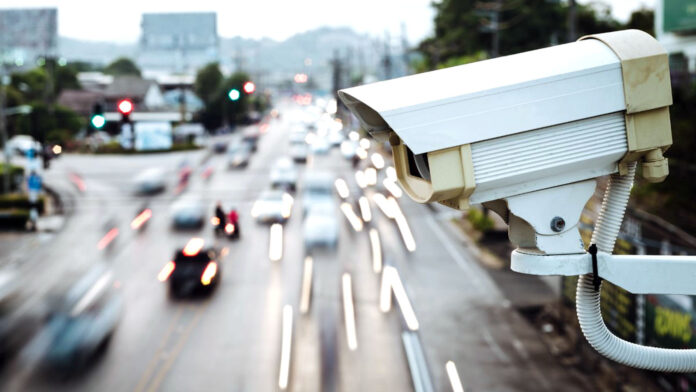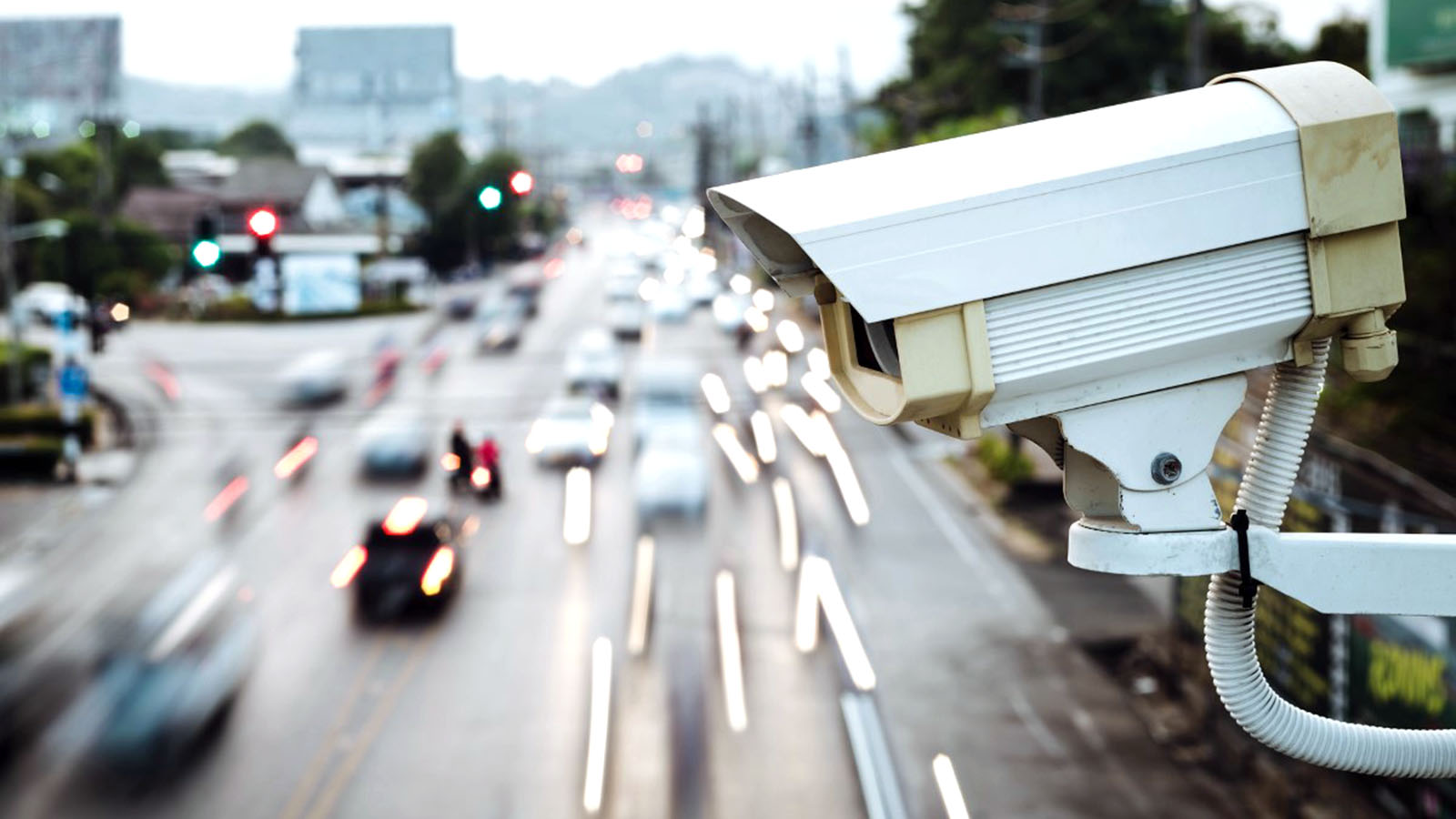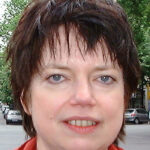At the Valdai meeting, Putin drew attention when he said: “The existing model of capitalism is outdated”. Of all the speeches he made, this was the only remark that alluded to the creeping revolution he is in the process of promoting in Russia.
Until the mid-2010s, Putin, consumed by his nostalgia for the USSR, was pursuing only one dream: to restore the empire rebuilt by Stalin, by iron and fire if necessary. But from 2017 he embraced a new project, even more exciting: to rebuild a USSR that works, a USSR 2 indestructible, free of the vulnerabilities that led to the fall of the communist regime. The discovery of the possibilities of artificial intelligence led him to tackle this historic task, inspired by the Chinese example: “The Communist Party has retained its leadership role, the market institutions still function and work effectively.” On September 1, 2017 the Russian president said, “Artificial intelligence is not only the future of Russia, it is the future of all mankind. […] Whoever becomes the leader in this field will be the master of the world.” Lenin used to say that the two pillars of Bolshevism were inventory and control. Digitalization will give new life to this long-forgotten Bolshevik slogan.
How did the Kremlin leadership come to see artificial intelligence as a universal panacea?
It all starts with the widespread use of surveillance cameras along road networks from 2015. Revenue from fines becomes a planned revenue item in the state budget. “The cameras are placed primarily to collect more money”, Vyacheslav Lyssakov, first deputy chairman of the State Duma’s constitutional committee, told Gazeta.ru. The regions plan the revenue part of the budget by anticipating the fines collected through the cameras: they set the amounts to be levied on offenders. The cameras are often installed in places that have nothing to do with road safety. The installation of these successful cameras is entrusted to private individuals for exploitation, under the pretext that there is not enough money in the budget to install video cameras recording traffic violations; in fact, they are the golden goose. Hence the decision to attract private investors. This system has been adopted in most regions. On October 3, 2017, First Deputy Prime Minister Igor Shuvalov said, “The introduction of the digital economy in Russia will significantly increase the collection of fines from the population. With the help of digital technologies, it will be more convenient to punish traffic violators — drivers and pedestrians.”
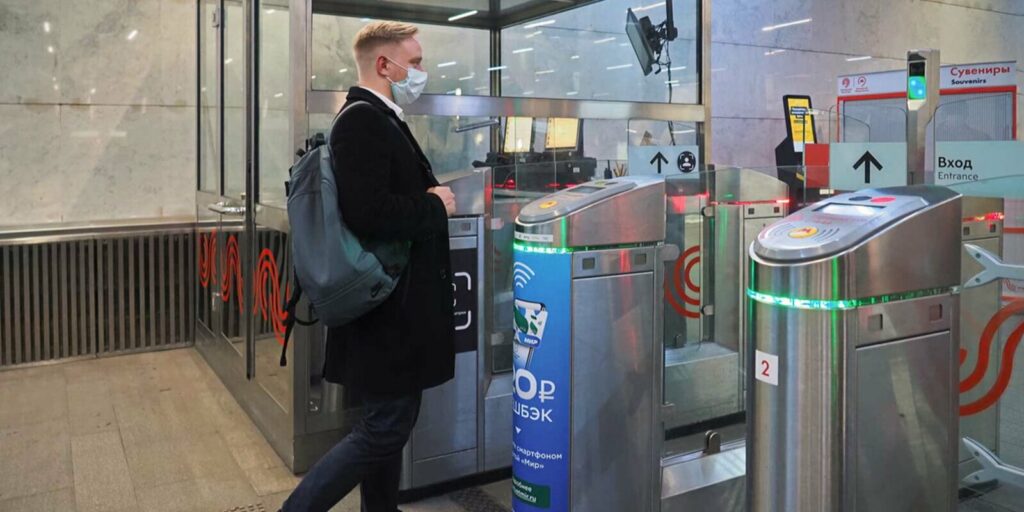
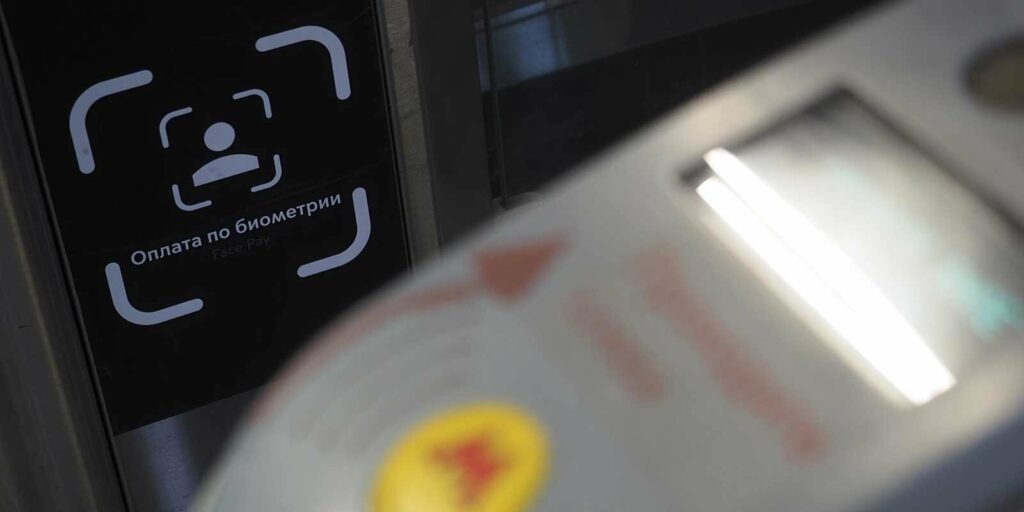
Thus, it is the increased possibilities of predation that first attracted the attention of Putin’s regime to the digital. But soon the men of the Kremlin realized that artificial intelligence has an even more invaluable advantage in their eyes: the possibility of total police control of the population. On June 12, 2017, surveillance cameras with automatic facial recognition were officially used for the first time, during a demonstration on National Day, which Alexei Navalny had called for. As part of an ambitious program, the city has installed nearly 190,000 surveillance cameras, one at each building entrance, on the streets and on public transport. Since January 2020, all cameras are connected to the automatic facial recognition system NtechLab. […] There are no legal restrictions on the use of this technology in Russia. It is worth noting that those who participated in the January 2021 Moscow protests were often arrested only after the FSB has finished processing the data provided by the system. In addition, the Yarovaya law obliges operators to retain, from July 1, 2018, the traffic of messaging, social networks and messaging services (audio recordings of calls, the content of messages and other communications of users) for up to six months. Law enforcement agencies can request this data under the pretext of fighting terrorism.
In 2018 the government of the Russian Federation announced its intention to launch a program for the development of the digital economy. A fund worth 100 billion rubles was planned for this purpose.
In 2019, new steps are taken. Putin approves an ambitious program for the development of artificial intelligence until 2030: “Artificial intelligence mechanisms provide fast, real-time, and optimal decision-making based on the analysis of gigantic amounts of information, which offers enormous advantages in terms of quality and efficiency […] Whoever acquires the monopoly of artificial intelligence will become the master of the world”, the Russian president repeats in May 2019. The choice of Mishustin to replace Medvedev as head of government in January 2020 is revealing. From March 2004 to December 2006, Mishustin headed the Federal Agency for the Real Estate Cadastre (Rosnedvizhimost), where he initiated major reforms by transferring all available real estate documentation into electronic form. Within two years, Rosnedvizhimost carried out a complete cadastral evaluation of land in the Russian Federation, which made it possible to introduce a property tax based on cadastral value from 2006. But President Putin was even more appreciative of the results of Mishustin’s efforts when he was appointed head of the tax administration and succeeded in “laundering” much of the Russian business that had previously escaped taxation. It was under the leadership of Mishustin that in 2019 the Federal Tax Service completed its transition to the new automated information system (AIS) “Tax-3”. In November 2019 Mishustin stated with satisfaction, “The ambitious task of centralizing disparate tax data in a single system and creating a technological basis for administering in the years to come has been accomplished”. The Financial Times acknowledged that “Russia is definitely one of the world leaders in tax digitization”. In an interview published by Kommersant, Mishustin, then head of the Federal Tax Service, spoke about the innovative technologies of this Service, the consequences of digitization of the state sector of the economy and society, which in Russia is well ahead of the rest of the world. Mishustin predicted “the future robotization not only of labor production processes, but also of intellectual work”: “Artificial intelligence will oust the most educated and active people who have high expectations for their standard of living”: this is the dream of the Russian government, which wants performance without tolerating the freedom of mind that is essential for true progress. “The most important asset of the digital world is data. Whoever collects and processes more of this data, gets more added value.” Thus digitization and control are the declared objectives of the new Prime Minister. As soon as he took office, he advocated conducting an inventory of the income of pensioners suspected of hiding large amounts of revenue from the state.
Under the Mishoustin government, the process of total digitization is accelerating. The law “On a single federal register of information containing information on the population of the Russian Federation” adopted by the State Duma and approved by the Federation Council came into force in June 2020. The idea is to create a database that will contain information on Russian citizens and foreigners on the territory of Russia. The data will be collected from the information systems of state authorities and extra-budgetary state funds. The state will collect about 30 different types of information about citizens, including education level, marital status, etc. In December 2020 the Russian president said that in the next decade the digital transformation of the entire country should be carried out, “to introduce everywhere the technologies of artificial intelligence, megadata analysis”. He recalled that Russia in the course of its history has carried out large-scale technological advances, in particular, in the late 19th – early 20th century, it built railroads at an unprecedented rate, and then in the last century it achieved electrification. “But our plans for the widespread introduction of artificial intelligence, digital transformation have no analogues in terms of the depth of change in all areas. They will really affect every person, every family, every branch of the economy and social sphere, every organization and every level of government, the entire system of government.”
On July 1, 2020, a law introducing a special legal regime in Moscow came into force, aimed at transferring to artificial intelligence the right to control life in the city. The Moscow Design published on this occasion (and then withdrawn from circulation due to scandal) emphasized that it was based on the principles of transhumanism to “improve a person’s mental and physical abilities and destroy aspects of human existence that are considered undesirable: suffering, aging, disease”. In October, the Moscow Metro began introducing Face Pay, which allows you to pay for your rides “by photo” (you must first install the app on your smartphone and upload your photo via it to a unified data storage center — ETSHD — at Moscow City Hall). Moscow City Hall has announced another innovation: surveillance cameras in the capital’s shopping malls are integrated into the same ETSHD. The aim is to track mask violators among their visitors. The mall administration will be punished for their behavior, but not only. Those who have already registered their physiognomy in the ETSHD databases (including to pay for travel) will also be automatically fined. In October 2021 the Federal Service of Judicial Officers announced its decision to spend 11.5 billion rubles on the development of digital technologies by 2023. Its goal is to connect artificial intelligence to the search for debtors and the collection of information about them.
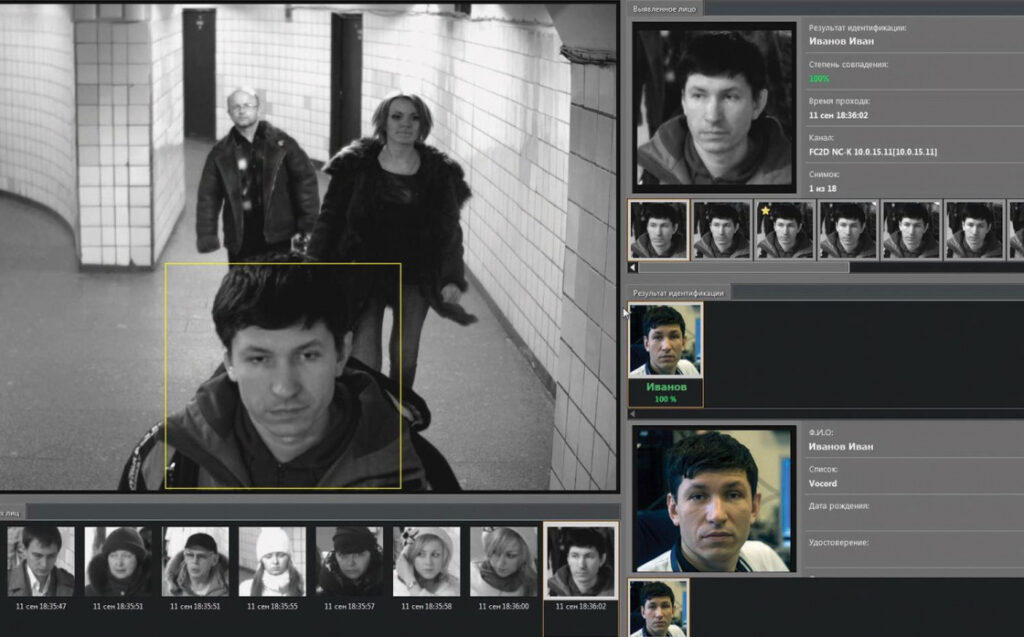
Also in October 2021, the Prime Minister approved a plan for the digital transformation of public administration, which involves the revival of state planning, but at a new technological level. This is a return to an improved Gosplan (Gosplan, the Soviet central planning body was abolished even before the collapse of the USSR, in May 1991) based on a unified automated system of data collection and analysis of key socio-economic parameters for real-time analysis. This is what central planning in the USSR was trying to achieve. Putin’s technocrats imagine that the Gosplan failed because of a lack of computing power. Mishustin’s government is resurrecting the Gosplan, relying on digital technologies and artificial intelligence: the prime minister has ordered key budget departments to implement the transition from disparate departmental digital platforms to a single federal platform, i.e. the integration and elimination of departmental digital fragmentation. The common digital platform will need to operate in an automated, self-adjusting, self-correcting mode. The aim is to “ensure the real-time correlation of the demands and needs of the country’s economic agents to reduce costs and increase production efficiency”. This, according to officials, “will increase the purchasing power of citizens.” A decree of the Government of the Russian Federation on updating the criteria for assessing the effectiveness of governors, signed by the Prime Minister, states that the level of “digital maturity” of the regions will become one of the tools for assessing regional officials.
The next step will be to outroot “obsolete capitalism”. The targets will be the two bastions of “systemic liberals” (integrated into the power system) in Russia, the Ministry of Finance and the Bank of Russia. One can expect a “dekulakization” of the new rich under the guise of promoting “national projects” entrusted to siloviki close to the Kremlin. For some time now, the Mishutin government has been quietly reforming liberal financial policy without formally changing the administrative and political rules. The Ministry of Finance is gradually being reduced to mere accounting functions. Russia’s new rich have caught the wind: Rubliovka, that ultra-chic Moscow suburb where oligarchs have built sumptuous palaces, is now deserted. Everyone has sold up and emigrated abroad. Real estate agents have given up finding buyers for the abandoned mansions. Even with a 70% discount on their value, they are not finding takers. In the third quarter of 2021, a record $33.9 billion was transferred abroad. In addition, the ANO “National Priorities” company, which is responsible for the propaganda of national projects, developed in October 2021 an information campaign to increase public confidence in artificial intelligence, which is currently associated in the minds of people with surveillance and armaments. The main objective of the campaign is to form a positive image of artificial intelligence in society, while there is more and more talk of “digital gulag”. The aim is to counter the Russian population’s distrust of artificial intelligence, which has been exacerbated by the pandemic and the restrictions associated with the fight against Covid.19
The September 2021 elections confirmed existing apprehensions by showing that electronic voting offered possibilities of massive falsification that the regime had not previously been able to dream of.
This is how the ambiguous futuristic article by Vladislav Surkov, one of the ideologists of the Putin regime (the inventor of the concept of “sovereign democracy”), published on October 11, entitled “Deserted Democracy and Other Political Wonders of 2121”, becomes clear. Surkov asserts that parliamentary representation is no longer necessary because the wishes of the population can be communicated in an instant via the Internet. In short, political representation must be thrown away and replaced by algorithms. Only computer scientists and siloviki will remain at the helm, running the giants of artificial intelligence behind the scenes. “The digitization and robotization of the political system will result in the creation of a high-tech state and a democracy without men […] in which the hierarchy of machines and algorithms will pursue goals beyond the comprehension of the people who serve it.”
It is easy to understand why Putin and the Kremlin’s group of siloviki are enthusiastic about artificial intelligence: the prospect of total control over the population, the mirage of a definitive liquidation of freedom and even of politics, is enough to seduce our Chekists, still traumatized by the fall of the USSR. Not to mention the infinite possibilities of blackmail and nuisance abroad: hence Putin’s motto that the one who masters artificial intelligence will also be the master of the world. The gigantic cyber attack of July 3, 2021 in the United States was enough to force President Biden to change his mind on the two points that mattered to Moscow: the abandonment of sanctions against Nordstream and the rallying to the disastrous Minsk agreements in the Russian version.
We can see that the Kremlin’s siloviki clan has nothing to envy to the Western advocates of the most extreme transhumanism. In his Valdai speech, Putin hypocritically feigned concern about the possible abuses of artificial intelligence: “The technological revolution, the impressive achievements in the field of artificial intelligence, electronics, communications, genetics, bioengineering, medicine open up tremendous opportunities, but they also raise philosophical, moral, and spiritual questions in the applied sense, which until recently were posed only by science and fiction writers. What will happen when technology surpasses man in the ability to think? Where is the limit of intervention in the human body, after which a person ceases to be himself and is transformed into another entity?” The answer is simple, according to him: one must wrest these technologies from the multinationals and give control to the states. The discourse on “moderate conservatism” and the defense of “traditional values” is a smokescreen, behind which Putin and his cronies seek to build a gigantic totalitarian device capable of removing from human weaknesses the machine of power they have been putting in place for the last 20 years.
Should we worry about this crazy ambition aggravated by senility? Let’s remember that already in 1986, when Gorbachev was endlessly babbling on “scientific-technical progress” , there were experts (including Western ones) who imagined that the Gosplan would be effective once it had computers. Reality has a thousand ways to take back its rights on the virtual. Natural intelligence will always be more creative than artificial intelligence. The digital mesh deployed by the Putin system does not prevent an impression of erosion today, including of the “vertical of power”. The blogger El Murid, a former ultra-patriot who defected to the opposition, describes the impact of Covid-19 in Russia as follows: “Putin, with his clinical cowardice, dodging his responsibilities by all means and hiding in basements and cellars, has already done more for the disintegration of the country than any external enemy. The regionalization of the country, the formation of clusters within the political class have become commonplace. The fact that governors are not yet taking full advantage of the opportunities they now have is a temporary phenomenon. Similarly, the empowerment of corporate structures and their growing capacity for initiative are now a given. The regime as it was two years ago is ceasing to exist, its structures are unraveling like rotting tissue.”
She has a degree in classical literature and spent 4 years in the USSR from 1973 to 1978. She is an agrégée in Russian and teaches Soviet history and international relations at Paris Sorbonne.
Books
- Beria, le Janus du Kremlin (Editions du Cerf, 2013)
- Comprendre le poutinisme (Desclée de Brouwer, 2018)
- La Marche à rebours (Sorbonne Université Presses, 2021)


